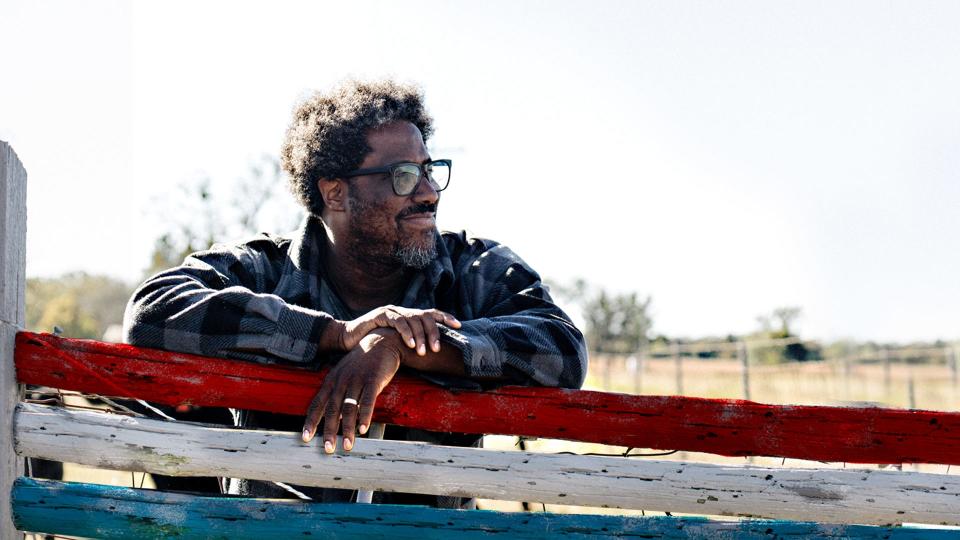'United Shades of America' host W. Kamau Bell: 'It’s time for all of us to be down for the work'
In Sunday's Season 5 debut of CNN's "United Shades of America with W. Kamau Bell" (10 EDT/PDT), its host assesses that racism has gotten “way worse” than when the show premiered in 2016.
The hourlong docuseries captures Bell's travels throughout America, as he examines the difficulties faced by its communities. (Friday, Bell also released bite-size knowledge in "Talk Boring to Me with W. Kamau Bell," a series of short animated videos on social issues like public education and to homelessness on his YouTube channel.)
At the very start of "United Shades," Bell, 47, met with people in the Ku Klux Klan, witnessing Kentucky members yell “white power” as a towering cross burned.
In Sunday's extended premiere, Bell revisits white supremacy. He travels to Pittsburgh, a city whose Gender Equity Commission published in its 2019 report that "Black women and men in other cities have better health, income, employment, and educational outcomes than Pittsburgh's Black residents." Bell addresses its 2018 mass shooting at the Tree of Life synagogue.
He also speaks with four former white supremacists and relives Barack Obama's historic win in the 2008 presidential election with his mom, author Janet Cheatham Bell.
Bell points to the White House and not to those draped in white hoods to explain the intensification of racism. In an interview, he says President Donald Trump "regularly race-baits and encourages his base to participate in racist acts.
"There was a period in this country where people who had really racist ideas felt like they had to be shamed into silence because of the civil rights movement," Bell says. "So, they didn’t say anything. I think a lot of people thought, 'Those ideas are gone. Those ideas are dead.' But those ideas were just quieter."
Terry Crews and CNN's Don Lemon clash over Black Lives Matter during broadcast
CNN teams up with 'Sesame Street' for anti-racism town hall: 'Content we all need'

He cites as one example former tech CEO Michael Lofthouse's hurling of racist remarks at Jordan Chan and her family as they dined at a restaurant in Carmel Valley, California, this month.
"What goes through your head as a white man that you just start yelling at an Asian family eating dinner, who has said nothing to you?" Bell asks. While cellphone video has made it easier to document such cases and hold people accountable, Bell believes "some of these people still feel like they have access to an emotion I don’t think they had access to before."
Minutes into the premiere, a graphic of an iceberg is used as a metaphor for white supremacy, with genocide, hate crimes and the KKK labeled above the water's surface.
"But beneath that cold, dark water is actually most of the structure that keeps white supremacy rolling along," Bell says in the show, highlighting police brutality, mass incarceration and gerrymandering, to name a few. Lower on the iceberg lies unchallenged racist jokes, whitesplaining, tokenism and All Lives Matter.
George Floyd told officers he couldn't breathe nearly 30 times, newly released body cam transcripts show
How to talk to your family, friends about racism and white privilege
It's been a long time.
I shouldn't have left you.
Without a dope season of United Shades of America to step to.🎤#UnitedShades is back!
Sunday, July 19 @ 10p ET / 7p PT on @CNN pic.twitter.com/aO6xSdX4A7— W. Kamau Bell (@wkamaubell) July 10, 2020
In his interview, Bell emphasizes that the instances are all connected.
"If you just think white supremacy is the Klan or Neo-Nazis, you’re actually not dealing with most of it, and you’re not helping," he says. "You’re actually, in a way, pro-white supremacy if you only show up when the Klan or neo-Nazis show up, because they don’t actually show up that often.
"Part of the ways in which white supremacy below the surface is allowed to thrive is because a lot of people just look at the worst offenders and go, ‘That’s white supremacy.'"
Bell says he wanted to provide "a good list" with the iceberg, understanding some people might be surprised by some of the transgressions. He encourages discussion – with one's friends and family, or reaching out to him on Twitter. Bell also recommends his friend, writer Kate Schatz, to white people.
Bell has a conversation in Sunday's premiere with Nicholas Anglin, a young Black man, that encapsulates the episode's mission.
"I'm not scared that if I go down South that I'm gonna get lynched anymore," Anglin says. "I'm more scared when I go outside the house, like, am I gonna get shot by a police officer?"
"I really felt like, ‘We could end the show right here. He just said the whole thing,’" s Bell says. Anglin is "saying, 'I'm afraid of the people who actually have power over me.'"
Bell wants viewers to know that the issues addressed in this week's premiere "are forever problems" that require "forever solutions."
"It’s not just about changing politicians or changing our minds; we actually have to change structures and institutions and laws," he says. "And that's hard work, and it takes a long time, but it can happen, but you have to be down for the work. So, I hope people take out of this episode it’s time for all of us to be down for the work."
100 ways you can take action against racism right now
Looking for books about racism? Experts suggest these must-read titles for adults and kids
This article originally appeared on USA TODAY: How W. Kamau Bell tackles white supremacy in CNN's "United Shades"
